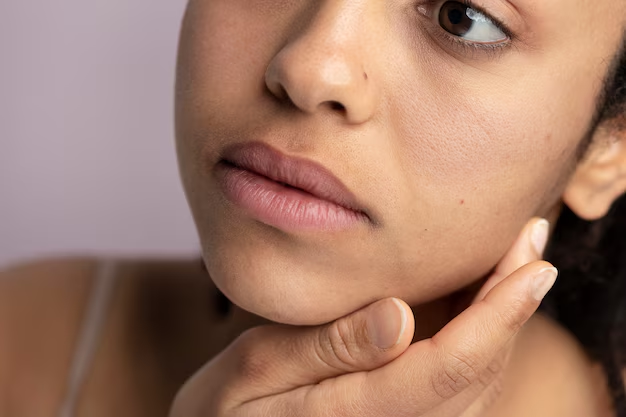Brighten Your Skin: How to Eliminate Dark Acne Spots Effectively
Acne can be incredibly frustrating, but what's often even more annoying is the dark spots that can linger long after the blemishes have cleared. These stubborn marks, known as post-inflammatory hyperpigmentation (PIH), can make skin tone appear uneven and dull, leaving many wondering how to restore their skin’s natural glow. If you’re looking for effective ways to get rid of dark acne spots, you’re in the right place.
Understanding Dark Acne Spots
Before diving into solutions, it's essential to understand what causes these pesky spots. Post-inflammatory hyperpigmentation occurs when the skin overproduces melanin in response to inflammation. This is a natural part of the skin's healing process after an acne breakout. The intensity and duration of these spots can vary widely from person to person due to factors like skin type, the severity of acne, and genetic predisposition.
Key Factors Influencing PIH
- Skin Tone: Those with darker skin tones may experience more pronounced hyperpigmentation due to higher melanin levels.
- Sun Exposure: UV exposure can darken the spots further and prolong the healing process.
- Picking and Squeezing: Manipulating acne lesions can intensify the inflammation and increase the likelihood of marking.
- Individual Healing Response: Everyone's skin heals differently, influencing how and when dark spots fade.
Top Strategies to Fade Dark Spots
Whether you prefer natural remedies or are open to trying over-the-counter solutions, there are multiple ways to tackle dark acne spots.
Over-the-Counter Solutions
Over-the-counter (OTC) products are a readily accessible and popular choice for fading dark spots. Here are some ingredients you might consider:
Vitamin C: Known for its brightening properties, vitamin C can help lighten hyperpigmentation and even out your skin tone. It also acts as an antioxidant, protecting skin from further damage.
Niacinamide: This form of vitamin B3 is excellent for reducing redness, improving skin elasticity, and brightening dark spots over time.
Retinoids: Over-the-counter retinol and adapalene (a specific type of retinoid) speed up cell turnover, helping shed pigmented skin cells faster.
Alpha Hydroxy Acids (AHAs): Ingredients like glycolic and lactic acid gently exfoliate the upper layer of skin, promoting the growth of new, less pigmented skin.
Professional Treatments
For those who seek faster results or suffer from more pronounced pigmentation, professional treatments might be a suitable option.
Chemical Peels
Chemical peels use acids of varying strengths to exfoliate the skin. By removing the top layers, they promote the growth of new skin that is often less pigmented.
Types of Peels:
- Light Peels: Typically involve mild acids like glycolic or lactic acid.
- Medium Peels: Use trichloroacetic acid (TCA) for deeper exfoliation.
- Deep Peels: Phenol or higher concentrations of TCA offer significant results but involve longer recovery.
Microdermabrasion
This minimally invasive treatment uses a device to gently sand the skin, removing the thicker, uneven outer layer. It can help improve tone and texture and diminish the appearance of superficial PIH.
Laser Treatments
Laser therapy targets pigmented areas with focused light energy to break down excess melanin. While generally effective, lasers are often more costly and may require several sessions.
Types of Laser Treatments:
- Ablative Lasers: Remove layers of skin (e.g., CO2 and erbium lasers).
- Non-ablative Lasers: Stimulate collagen production without removing skin layers (e.g., Nd:YAG laser).
Natural Remedies
For those cautious about synthetic ingredients, natural remedies can also offer gradual improvements.
Aloe Vera: Known for its soothing properties, aloe vera can aid in reducing inflammation and potentially lighten dark spots over time.
Green Tea Extract: Rich in antioxidants, green tea can help prevent further damage and soothe inflamed skin, encouraging even-toned renewal.
Licorice Extract: Contains glabridin, which has been found to help reduce pigmentation and prevent new spots from forming.
Apple Cider Vinegar: Diluted apple cider vinegar is a natural exfoliant that can help promote skin cell turnover.
Maximizing Your Results: Essential Skincare Tips
Regardless of the treatment you choose, incorporating these habits into your skincare routine is crucial for preventing and minimizing dark spots.
Daily Sun Protection
Sunscreen: UV rays can worsen hyperpigmentation, so applying a broad-spectrum sunscreen with at least SPF 30 daily is paramount. Reapplying every two hours, especially when outdoors, will give you the best defense against spots.
Consistent Skincare Routine
Develop a consistent skincare routine geared towards brightening and renewal:
- Cleanse Daily: Use a gentle cleanser to remove dirt and oil without stripping your skin.
- Exfoliate Weekly: Aim to exfoliate 1-2 times a week to promote skin turnover and fade spots faster.
- Moisturize: Keeping skin hydrated is essential for overall health and healing.
Be Patient and Persistent
For any chosen treatment, patience is key. Most topical treatments and natural remedies require consistent use over weeks to months to see noticeable results. Regular follow-ups with dermatologists or skincare professionals can help adjust your treatment plan as needed.
Empowering Your Skincare Journey
Remember, overcoming hyperpigmentation from acne isn't an overnight process, but understanding your options can make the journey less daunting. Whether you opt for OTC treatments, professional procedures, or natural remedies, each path can bring you closer to clearer skin. Evaluate your skin’s needs and comfort levels as you choose the best method to address your hyperpigmentation concerns.
Quick Tips for Fading Dark Acne Spots
- 🌞 Wear Sunscreen Daily: Protect against UV-induced pigmentation.
- 🍊 Incorporate Vitamin C: Brighten and protect your skin.
- 🌿 Consider Natural Remedies: Safe and gentle alternatives for gradual results.
- 🧴 Be Consistent: Follow a daily skincare routine for best outcomes.
- 🔬 Explore Professional Options: For faster and more significant results, consider peels or lasers.
- ⏳ Practice Patience: Skin renewal takes time; results won’t be immediate.
Understanding and addressing dark acne spots can be empowering. By tailoring your skincare routine to focus on these stubborn marks, you will be on your way to smoother, more radiant skin. Embrace the journey with confidence and let your natural beauty shine through!

